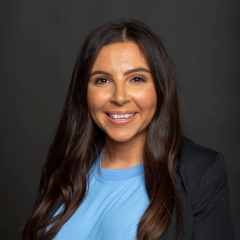Central Register of Beneficial Ownership of Companies: New Restrictions on Access
Since 13 June 2023, persons seeking to inspect information on the central register of beneficial ownership of companies must first demonstrate that they have a “legitimate interest” in anti-money laundering and countering terrorist financing (“AML”) to justify that access. The changes are introduced under new 2023 Regulations following a significant 2022 judgment of the Court of Justice of the European Union.
Background
In November 2022 the European Court ruled1 that public access to information on companies’ beneficial owners “constitutes a serious interference with the fundamental rights to respect for private life and to the protection of personal data”. The public access rights under regulation 25 of the 2019 AML Regulations2 were incompatible with that ruling and so, following an administrative restriction on access initially (see our previous client briefing here), new 2023 Regulations3 have restricted the basis for access to the central register as a matter of legislation.
The obligation on companies (and, separately, on trusts) to maintain the company-specific register of the beneficial owner(s) of the company (and which feeds into the central register) is not affected.
“Legitimate Interest” Requirement
A new “legitimate interest” requirement applies to any person that is seeking to inspect information in the central register. A person may not access the central register unless the person can demonstrate to the Registrar of Beneficial Ownership of Companies and Industrial and Provident Societies (the “Registrar”) that:
- the person is engaged in the prevention, detection or investigation of money laundering or terrorist financing offences,
- they are seeking to inspect the information for those purposes, and
- the access would be in respect of an entity that is connected with a person that has been convicted of an AML offence or who holds assets in a high-risk third country.
“Legitimate interest” is demonstrated to the Registrar through the making of a submission and, if required by the Registrar, the supplying of information or documents including those relating to the requester’s previous activities, if any, in AML.
High-Risk Third Countries
The European Commission has developed, and will update regularly, a list of “high-risk third countries”, in accordance with Directive (EU) 2015/849. These are jurisdictions that the Commission has identified as having strategic deficiencies in their AML regime. A consolidated list of high-risk third countries is available here.
“Public Interest” Requirement for Information relating to a Minor
Designated persons or any other persons will not be permitted to access information in the central register relating to a minor who is a beneficial owner of an entity, unless they provide a summary of grounds on which they consider it is in the public interest to disclose such information to the Registrar, who may permit disclosure when satisfied that there are substantial public interest grounds for doing so.
Record-keeping
Under the 2023 Regulations, the Registrar must retain records on the basis of which access is sought or granted to the central register, for a period of five years from the date of creation of the relevant record.
Also contributed by Morris Hung
- The Sovim decision (C-37/20 and C-601/20).
- European Union (Anti-Money Laundering: Beneficial Ownership of Corporate Entities) Regulations 2019 (SI 110 of 2019).
- European Union (Anti-Money Laundering: Beneficial Ownership of Corporate Entities) (Amendment) Regulations 2023 (SI 308 of 2023).
This document has been prepared by McCann FitzGerald LLP for general guidance only and should not be regarded as a substitute for professional advice. Such advice should always be taken before acting on any of the matters discussed.






Select how you would like to share using the options below